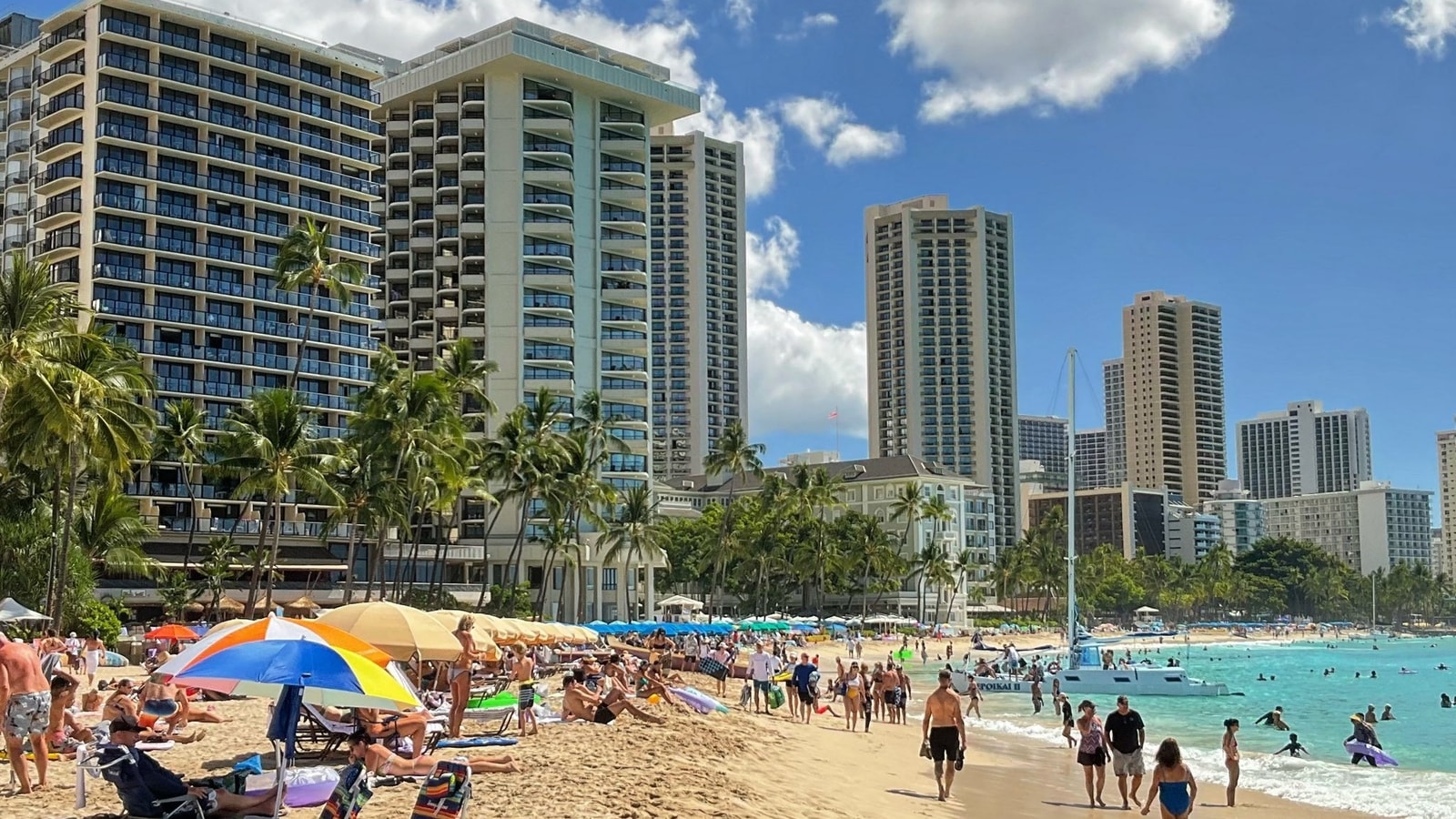US cities of Orlando and Oahu rebound fastest thanks to leisure tourism | Travel
Tourist havens like Orlando and Oahu derive more revenue from taxes levied on hotel nights than their counterparts that rely on business travel.
Cities that rely heavily on business travel have seen a bigger drop in revenue per available room since the pandemic began, Professor Justin Marlowe of the University of Chicago’s Harris School of Public Policy and HVS consultant Tom Hazinski co-authored in a draft research paper the duo provided to Bloomberg.
For example, Boston, which is considered a commercial city, saw a 70% drop in revenue per available room, compared to leisure-focused Phoenix, which saw a 39% drop. The metric used by the researchers is an industry standard for measuring revenue strength in the hosting market.
Lodging taxes, which are levied on short-term stays at accommodations like hotels and Airbnbs, represent a small portion of general fund revenue for most municipalities, according to the document. But about $4 billion of bonds are directly or indirectly backed by local lodging taxes or hotel revenues, meaning a drop in those revenue streams could potentially hurt the credit quality of that debt.
“People will pay dearly for leisure travel, especially to traditional leisure destinations,” Marlowe said in an interview. “Meanwhile, on the business travel side, now that meetings can be done via Zoom and people are less enthusiastic about traveling to certain types of destinations, you actually have the opposite.”
The report revealed that the pandemic caused a split as travel began to rebound. Cities that lagged were those focused on convention attendance and business meetings, while those that rebounded faster were vacation-focused.
The bifurcation is more likely due to temporary weakness in the economy than a secular decline in business travel, said Richard Schwam, municipal bond analyst at AllianceBernstein LP.
“I think part of what may be delaying the recovery of business travel is the economy, with a lot of people predicting a recession,” he said. “But it still seems to me that the type of business travel where you’re trying to get out there and do more business, which I always feel is the biggest driver of business travel, is hard to replace with Zoom.”
Because lodging taxes are not reported as a separate category in the U.S. Census or other traditional local government financial data sources, Marlowe and Hazinski analyzed data from the annual financial reports of the 25 largest U.S. cities. . They also analyzed surveys of hotel operators, historical analyzes of changes in local accommodation tax rates, and approximately 150 municipal bond issuance reports.
Towns that aren’t primarily focused on tourism could market themselves to vacationers to boost their accommodation income, Marlowe said.
This story was published from a news feed with no text edits. Only the title has been changed.


Comments are closed.